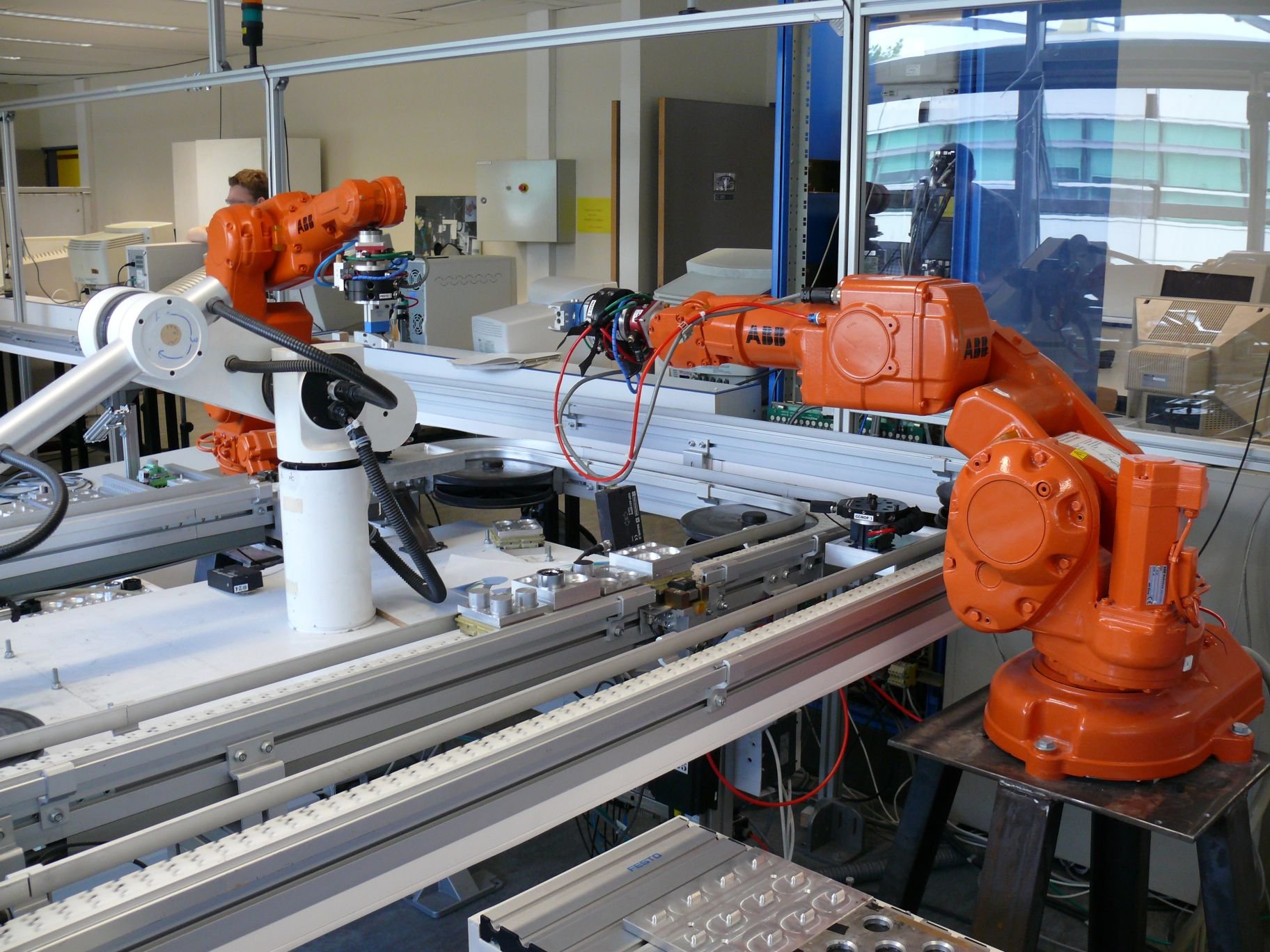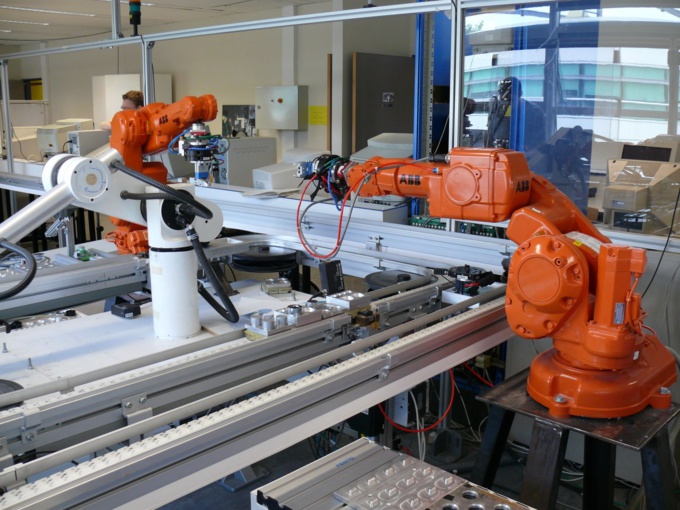If the current pace of automation continues, by the year 2030, more than 375 million people in the world, primarily those engaged in manual laborб or whose work is associated with the performance of typical tasks, will have to master a new specialty, since their work is most likely to be performed by robots . This is stated in a new study by the McKinsey Global Institute on the impact of automation and robotics on human resources. However, McKinsey’s experts, it can also happen that almost 800 million people, or one-fifth of all the world's workforce will remain without work by 2030. This can happen in the event that economically developed countries will increase the pace of automation of labor.
McKinsey Global Institute analyzed the possible development of the situation with jobs in 800 specialties in 46 countries. Experts came to the conclusion that with the currently available technologies, some 60% of the types of labor activity may be partially automated by 2030, and not more than 5% of the types of labor activity expects full automation.
The greatest number of jobs will be occupied by cars and robots in China (about 230 million), India (about 120 million) and in the US. In the US, by the year 2030, up to 73 million workers can be reduced, as their work will be performed by robots, but only 53 million of them will have to be completely retrained to a new profession. 20 million workers, according to McKinsey, can simply be transferred to a similar one work.
Among those specialties that are the first to surrender under the onslaught of robots, those that are associated with physical labor, control mechanisms, preparing fast food, collecting and processing data, accounting. But those who work with people or whose work requires a high level of knowledge, may not worry about their workplace - these are scientists, teachers, medical personnel, IT specialists, social workers, engineers, gardeners, locksmiths, etc.
However, as the experts note, there are positive aspects too, if, of course, it will be possible to successfully cope with the most difficult task - to retrain millions of workers. Considering competition with robots, employees will have to constantly improve their qualifications and master new specialties. This will increase labor productivity, which will contribute to economic growth and increased pay. Receiving more, workers will spend more, and this, in turn, will create more than 360 million new jobs.
At the same time, McKinsey does not expect that the demand for human labor will fall. "We believe that in the future there will be a lot of demand for people's labor even against the backdrop of growing automation.
For example, it will be necessary to look after other people in countries with aging populations, develop and implement technologies, improve energy efficiency and solve environmental problems, produce goods and services for the growing consumer middle class in developing countries, not to mention the infrastructure and buildings needed for the extent of urbanization of the population," said Michael Chui, partner of the McKinsey Global Institute, one of the authors of the study.
The researchers also consider an option that the introduction of automation will go at a slower pace, and then change the specialty will have only 10 million employees.
Comparable technological shifts have already occurred in history, researchers recall, but they did not lead to long-term growth in unemployment rates. For example, the introduction of personal computers in the US since 1980 resulted in a certain reduction in jobs, but also allowed to create 15.8 million new jobs in those specialties where a personal computer is used.
source: mckinsey.com
McKinsey Global Institute analyzed the possible development of the situation with jobs in 800 specialties in 46 countries. Experts came to the conclusion that with the currently available technologies, some 60% of the types of labor activity may be partially automated by 2030, and not more than 5% of the types of labor activity expects full automation.
The greatest number of jobs will be occupied by cars and robots in China (about 230 million), India (about 120 million) and in the US. In the US, by the year 2030, up to 73 million workers can be reduced, as their work will be performed by robots, but only 53 million of them will have to be completely retrained to a new profession. 20 million workers, according to McKinsey, can simply be transferred to a similar one work.
Among those specialties that are the first to surrender under the onslaught of robots, those that are associated with physical labor, control mechanisms, preparing fast food, collecting and processing data, accounting. But those who work with people or whose work requires a high level of knowledge, may not worry about their workplace - these are scientists, teachers, medical personnel, IT specialists, social workers, engineers, gardeners, locksmiths, etc.
However, as the experts note, there are positive aspects too, if, of course, it will be possible to successfully cope with the most difficult task - to retrain millions of workers. Considering competition with robots, employees will have to constantly improve their qualifications and master new specialties. This will increase labor productivity, which will contribute to economic growth and increased pay. Receiving more, workers will spend more, and this, in turn, will create more than 360 million new jobs.
At the same time, McKinsey does not expect that the demand for human labor will fall. "We believe that in the future there will be a lot of demand for people's labor even against the backdrop of growing automation.
For example, it will be necessary to look after other people in countries with aging populations, develop and implement technologies, improve energy efficiency and solve environmental problems, produce goods and services for the growing consumer middle class in developing countries, not to mention the infrastructure and buildings needed for the extent of urbanization of the population," said Michael Chui, partner of the McKinsey Global Institute, one of the authors of the study.
The researchers also consider an option that the introduction of automation will go at a slower pace, and then change the specialty will have only 10 million employees.
Comparable technological shifts have already occurred in history, researchers recall, but they did not lead to long-term growth in unemployment rates. For example, the introduction of personal computers in the US since 1980 resulted in a certain reduction in jobs, but also allowed to create 15.8 million new jobs in those specialties where a personal computer is used.
source: mckinsey.com



















